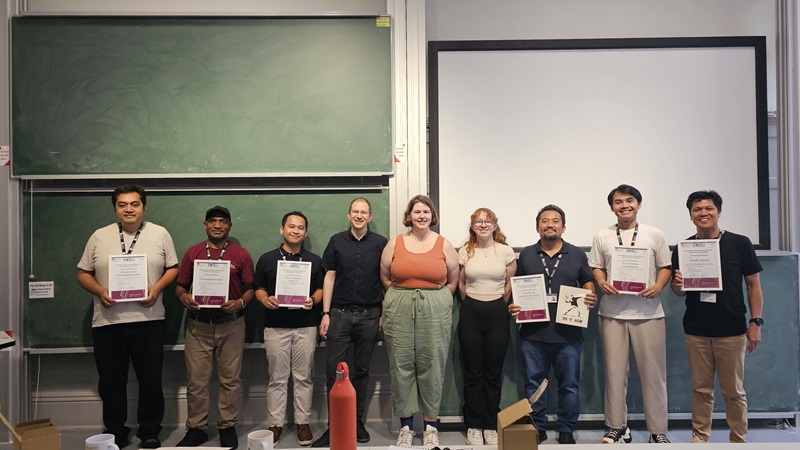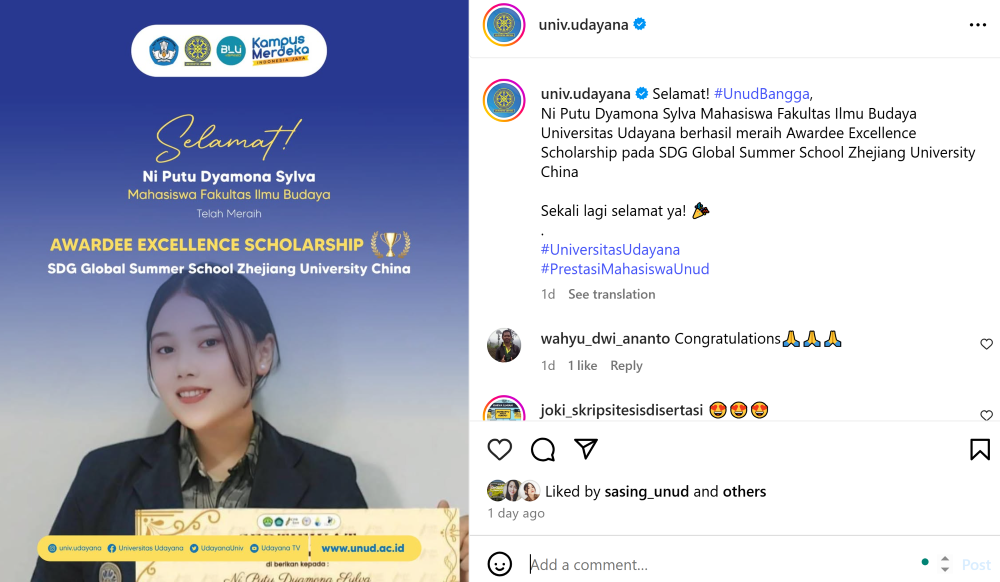Educational Philosophy
The program's educational philosophy was developed to conform to Unud’s philosophy reflected on its motto and symbol. Unud’s motto is taki takining sewaka guna widya, which means 'earnestly devoted themselves to virtue and science'. The symbol of Unud is Widya Cakra Prawartana in the form of a chakra wheel which has a blue base. It carries the notion that science is dynamic spinning like a wheel or chakra. This thinking is very relevant to the concept of life-long learning because knowledge is always spinning and there is a novelty.
The educational philosophy of the ED also adopt the four pillar of learning prescribed by UNESCO as the fundamental principles for reshaping education including
- learning to know: to provide the students the cognitive tools required to better comprehend about English language and literature,
- learning to be: to provide self-analytical and social skills to enable students to develop to their fullest potential psycho-socially, affectively as well as physically, to be an excellent, independent, and cultured graduates,
- learning to do: to provide the skills that would enable students to do with English to effectively participate in the global economy and society, and,
- learning to live together: to expose individuals to the values implicit within human rights, democratic principles, intercultural understanding and respect and peace at all levels of society and human relationships to enable students as individuals and societies to live in peace and harmony.



FACULTY OF HUMANITIES